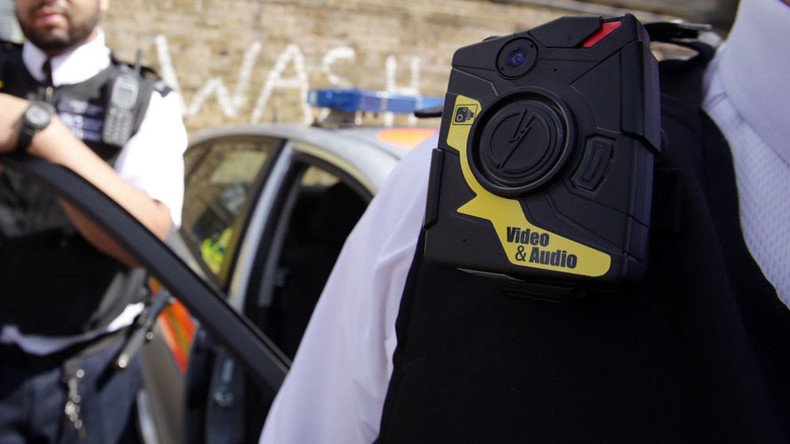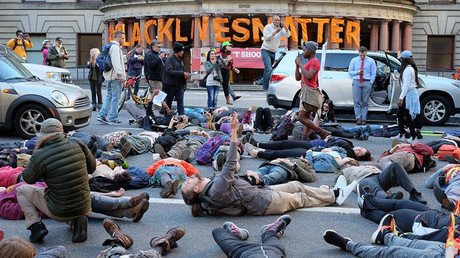Thousands of London police officers to start wearing body cams

More than 22,000 Metropolitan police officers will soon be equipped with body-worn cameras, in what Scotland Yard is calling the biggest roll-out of the equipment in the world.
The cameras will be distributed in London’s 32 boroughs to frontline officers and those in specialist roles, including firearms officers. The first of the cameras were deployed in the south-east London Borough of Lewisham on Monday.
The deployment of the technology is being phased in, with further boroughs issuing the cameras each week. The roll-out is expected to be complete by next summer, the Met said.
Scotland Yard hopes the cameras will help restore trust between police and local communities.
“The cameras will support our officers in the many challenging situations they have to deal with, at the same time as building the public’s confidence,” said Commissioner Sir Bernard Hogan-Howe said at launch on Monday.
“What we do every day will be seen by the public – that has to be good.”
London Mayor Sadiq Khan, who joined Hogan-Howe at the Lewisham launch, said the cameras will help protect officers and ensure accountability in policing.
“Body Worn Video is a huge step forward in bringing our capital’s police force into the 21st century and encouraging trust and confidence in community policing,” Khan said.
“This technology is already helping drive down complaints against officers and making them more accountable, as well as helping to gather better evidence for swifter justice.”
The cameras, which will not be permanently recording, will be attached to officers’ uniforms. Police have said that officers will explicitly notify members of the public as soon as is practical when they are being recorded. The cameras will be marked with a flashing red circle and will emit a beeping noise when recording is in progress.
Video footage that is not used for policing purposes is automatically discarded after 31 days.
Last month, a University of Cambridge study found that police officers clearly wearing body cameras receive 93 percent fewer complaints. The researchers suggested that this may because awareness that encounters are being recorded improves both the behavior of suspects and police procedural compliance.
In the US, the killings of Michael Brown, Eric Garner, Walter Scott, and a number of other unarmed black people by police officers since 2014 has brought the debate over body cams into the spotlight, with a number of police forces across the US moving to deploy body-worn cameras in an effort to bolster public trust in law enforcement.
READ MORE: Not a single NYPD officer wears a body camera
The rollout of this technology has, however, been met with pockets of resistance and questions over how exactly the cameras should be used. Some reform advocates argue that the use of the cameras may erode personal privacy, while law enforcement agencies have raised concerns over the high costs of storing the data.













